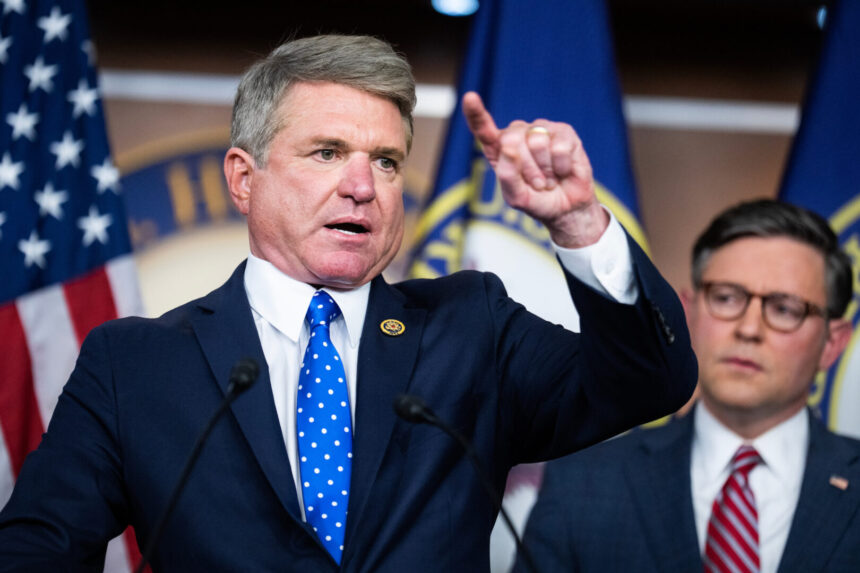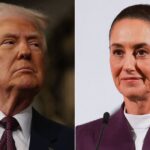In a move that reshapes the Republican landscape in Texas and echoes across Capitol Hill, Congressman Michael McCaul announced that he will not seek re-election in 2026. McCaul, a Republican who has represented Texas’s 10th Congressional District since 2005, has been one of the most influential voices on foreign policy and national security in Congress. His decision marks the end of a two-decade tenure defined by his hawkish stance on global threats, steadfast support for Ukraine, and bipartisan work on homeland security issues.
A Legacy in Foreign Policy
McCaul, who currently chairs the House Foreign Affairs Committee, has built a reputation as one of the most experienced foreign policy leaders in the Republican Party. From his early days addressing counterterrorism after 9/11 to his more recent work on U.S.-China relations and support for Ukraine against Russia’s invasion, McCaul has positioned himself as both a Republican loyalist and a pragmatist willing to cross party lines when it came to defending America’s role on the global stage.
In his statement, McCaul reflected on the “enormous honor” of serving his district, but emphasized that the time had come to “pass the torch” to the next generation. “We live in extraordinary times,” he said. “The threats America faces abroad are serious, but so too are the challenges we face at home. I have given my all, and now it is time for new leadership to step forward.”
The decision comes amid a turbulent political climate. Former President Donald Trump continues to wield significant influence over the Republican Party, and McCaul’s open support for U.S. aid to Ukraine had put him at odds with some of the party’s most vocal pro-Trump members. In recent months, McCaul had faced increasing pressure from his right flank, with speculation that he could face a serious primary challenger.
Rather than engage in a divisive re-election fight, McCaul appears to have chosen to leave on his own terms. Political observers note that his departure underscores the growing divide within the GOP between traditional internationalists and the more isolationist, populist wing of the party.
Reaction in Washington and Texas
McCaul’s announcement drew swift responses from across the political spectrum. Democrats praised his willingness to work across the aisle on issues like cybersecurity and foreign aid, even while disagreeing with him on many domestic policies. Republican colleagues lauded his steady leadership, with Speaker Mike Johnson calling him “a statesman whose expertise will be deeply missed in the House.”
Back home in Texas, reactions were mixed. Many constituents remembered his strong advocacy for border security and his efforts to strengthen infrastructure across central Texas. Others, however, criticized him for what they saw as establishment politics out of step with the newer, Trump-aligned GOP base.
What This Means for Texas
McCaul’s district, which goes from the Austin suburbs to parts of Houston, has changed politically over time. It’s been mostly Republican while he’s been in office, but changes in who lives there and how the suburbs vote have made it more of a toss-up. Now that he’s retiring, the 2026 race could be one to watch. You hear talk about a bunch of Republicans wanting his seat, from the Trump type to your regular conservatives. Democrats see this as a chance too, especially since they’ve been doing better in the Texas suburbs lately.
McCaul’s Main Issues
While he was in Congress, McCaul worked on a lot of things. Here are some of the main ones:He wrote some important laws to make our cybersecurity stronger and help different groups work together better to fight terrorism after 9/11. He was always talking about how important it is to support our friends, like Ukraine. He didn’t like countries like Russia, Iran, and China. He wanted stricter rules and more people helping out at the U.S.-Mexico border. He worked with Democrats to fight human trafficking and make airports safer.
A Bigger Trend
McCaul is just one of many experienced politicians leaving Congress. Some are tired of all the arguing between parties. Others, like McCaul, think it’s time for new people to step up. His leaving shows how things are changing in American politics. Traditional Republican leaders are finding themselves at odds with the more everyday-person mood that’s changing the party.
What’s Next for McCaul
No one knows for sure what McCaul will do next, but there lots of speculation. Some folks think he might go into teaching, join a think tank, or work for a company. His knowledge of cybersecurity and foreign policy would be very useful. Other people think he’ll stay involved with Republicans behind the scenes, mostly when it comes to international security stuff.
Right now, McCaul mentions he wants to spend more time with his family. He said serving the public is a great honor, but it takes a toll. After 20 years, he’s ready to focus on his family. Michael McCaul’s choice not to run again is shows more than someone retiring after a very long time. It’s like the end of something for Texas Republicans. It shows how the Republican Party is fighting over ideas, also shows how tricky it is for America to keep experienced people involved in foreign policy.
When the 2026 election gets closer, McCaul’s not being there will be felt in Texas and the discussions in Washington about what America should do in the world. With him gone, it makes we question who will take his place as a steady, strong leader as the Republican party becomes more about what everyday people want.
Michael McCaul to Not Seek Re-election







